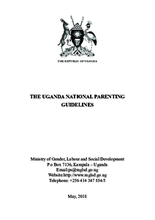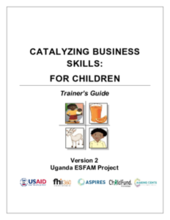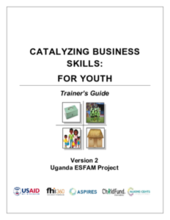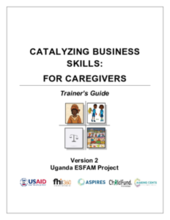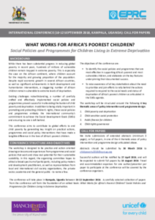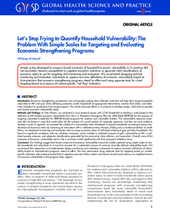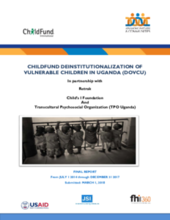This country page features an interactive, icon-based data dashboard providing a national-level overview of the status of children’s care and care reform efforts (a “Country Care Snapshot”), along with a list of resources and organizations in the country.
demographic_data
childrens_living_arrangement
children_living_without_bio
social_work_force
key_stakeholders
Key Stakeholders
Add New DataOther Relevant Reforms
Add New Datadrivers_of_institutionalisation
Drivers of Institutionaliziation
Add New Datakey_research_and_information
Key Data Sources
Add New DataThe Children Act (Uganda)
Country Care Review: Uganda
Prevalence and number of children living in institutional care: global, regional, and country estimates
The National Integrated Early Childhood Development Policy Action Plan (2016-2021) of Uganda
Catholic Care for Children in Uganda: A Family for Every Child - Findings from a Midterm Evaluation
Acknowledgements
Data for this country care snapshot was contributed by a consultant with the Data for Impact (D4I) Project at Palladium Group LLC.
Displaying 181 - 190 of 418
This chapter looks at what the international law instruments recommend regarding the appointment of legal guardians. It provides an audit of the instruments which are applicable to the regulation of the appointment of legal guardians for children both at the global and regional levels.
According to this article from AllAfrica, Uganda's Ministry of Gender, Labour and Social Development "is engaging founders of orphanages countrywide with the aim of reviewing their operations," with a view to closing orphanages altogether.
These Guidelines are for all persons taking care of children. The goal of these Guidelines is to empower parents, the family and community structures to effectively nurture children so that they can realise their full potential.
Making Cents International (Making Cents), in partnership with ChildFund International, developed the Catalyzing Business Skills curriculum for the Economic Strengthening to Keep and Reintegrate Children into Families (ESFAM) project in Uganda. This Trainer’s Guide is intended to be used with children participating in savings groups who are interested in engaging in successful income generation activities.
Making Cents International (Making Cents), in partnership with ChildFund International, developed the Catalyzing Business Skills curriculum for the Economic Strengthening to Keep and Reintegrate Children into Families (ESFAM) project in Uganda. This Trainer’s Guide is intended to be used with youth participating in savings groups who are interested in engaging in successful income generation activities.
This curriculum aims to build the financial literacy and business knowledge, skills, and attitudes necessary for adult members of Economic Strengthening to Keep and Reintegrate Children into Families (ESFAM) savings groups to successfully generate income.
EPRC Uganda has issued a call for papers for its International Conference entitled "What Works for Africa’s Poorest Children? Social Policies and Programmes for Children Living in Extreme Deprivation."
Child’s i Foundation is seeking to hire a talented, dedicated and passionate individual to fill the Country Director position to help them achieve their vision of every child growing up in a loving family in Uganda.
This article discusses efforts in 3 countries to develop simple, valid tools to quantify and classify economic vulnerability status.
This final report on the “Deinstitutionalization of Vulnerable Children in Uganda” (DOVCU) project identifies its successes as well as some shortcomings and key learning that is directly relevant to other projects working to support family care for children.

